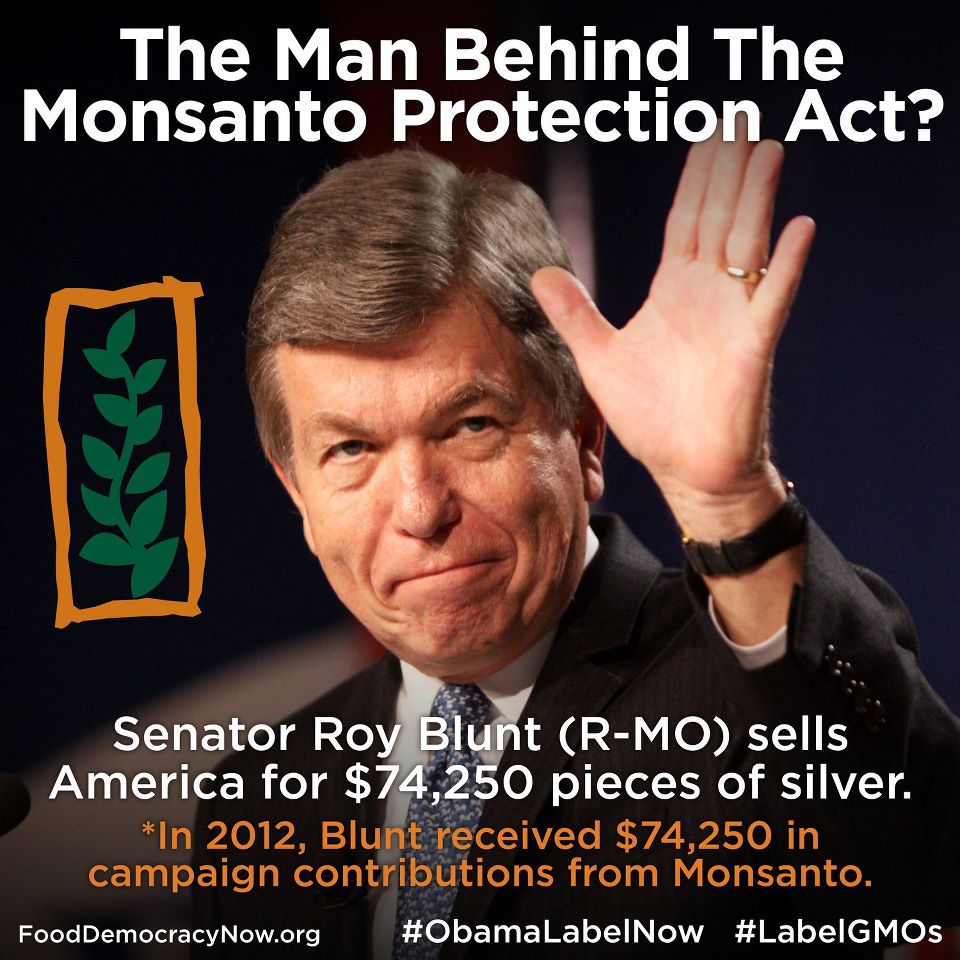Mon$anto vs. Mother Earth
-

-
Seriously all of this over labeling???
Sent from my Milestone X2 using Tapatalk 2
-
Yes indeed I am.
-
The guy who helped start the anti-GMO movement is now sorry he did. Mark Lynas, who, by his own admission, “helped to start the anti-GM movement back in the mid 1990s,” publicly apologized in January for years of “ripping up GM crops.” In a speech at the Oxford Farming Conference, Lynas openly defended the technology as a way to feed the earth’s growing population without devastating the environment.When explaining what changed his mind, his answer was simple: “I discovered science.”
http://www.guardian.co.uk/environment/2013/mar/09/mark-lynas-truth-treachery-gm
GREAT article! Good reading.
-
You seem very happy with yours!

-
I am not sure that I believe that all genetic modification is necessarily bad. We have been genetically manipulating plants forever, our methodology has been selecting the traits we desire in plants that exhibit those traits, and developing and securing the seeds from these strains "organically". Placing our bias on natural selection.
I can see how the genetic modification of plants under certain circumstances could be quite beneficial, particularly in disease control.
But with Monsanto, their protectionist posture, and their history of litigation, has me believing that their motives are not working towards better plant species as such, but in obtaining control and profit.
Lets take labeling for example.
What could possibly be harmful about requiring genetically modified foods to be labeled as such?
I believe that they fully understand that many people would not purchase these products, seriously affecting the bottom line.
What is good about labeling? Simply, choice. A lot of folks take label reading seriously, trying to promote good health in the minefield of manufactured foods. If in fact there is nothing unhealthy about GM foods, then, fine, label them.
My real worries about Monsanto are more centered around Genetic Use Restriction Technology, GURT. It is also referred to as terminator seed. This, and its use of "Roundup ready" crops.
I keep hearing references to Monsanto's work in biodiversity.
Somehow I just can't see how taking a seed, which would normally be the mechanism by which the plant would reproduce, and manipulating it's genetic structure so that it can't, has anything to do with biodiversity. It seems to me to be about control.
And Roundup Ready crops. Manipulating a seeds genetics to not be affected by glyphosate, which just happens to kill virtually every other plant species in the field, that's sustainably biodiverse monoculture right? Does it increase yield? Absolutely. At what cost?
Particularly to the soil.
And those weed species. Weeds are so labelled because they are said to deter crop production. But to the soil, weeds can often be beneficial. There are plants that fix nitrogen, and plants that use nitrogen. They are also indicators of the soil itself. If you see horsetail in an area, there is surely a high silica content in the soil.
But who cares right?
I do.
I don't care if Monsanto continues working in the genetic modification of plants.
I do care that we have given them the right to sue me, if by natural pollination process, you know where the bee with pollen from their tomato lands on my heirloom variety, and I end up with the genetics of their seed. I don't want their seed.
And I don't want to eat food that contains genetically modified components.
Give me the choice not to, and you the choice to. How does that sound? -
Quite reasonable, as far as I'm concerned.
-
I think the GMO question is a tough one. I majored in Biology and had a lot of molecular and genetic studies and still I feel the issues would require a lot more study than I have so far to form a good opinion. Maybe it's an open ended process. Like nuclear power--I was for a long time all anti-nuke and I still think it has not been worked out well enough-- or we are not mature enough for it. Like nuclear energy, we are moving into more powerful arenas with gene manipulation that are far beyond breeding and grafting. Great potential for good and bad, and reason to think before we leap. By all means keep the science going. Unlike some I am not for crushing knowledge just because I don't agree with some of it's potential uses.
-
Why prop 37 (GMO labeling) is bad legislation.
http://www.forbes.com/sites/realspin/2012/11/02/who-will-cover-the-costs-of-californias-prop-37/
and here
http://www.science20.com/caution_pondering_scientist_ahead/confessions_organicmunching_genetic_engineer_no_prop_37_written-95993
Who is harmed by prop 37 the most?unreasonable litigation and other common myths
http://www.npr.org/blogs/thesalt/2012/10/18/163034053/top-five-myths-of-genetically-modified-seeds-busted?source=science20.comWhy are organic growers exempt from the GMO labeling?
-
If you think the cost is just a matter of a few printed labels....
http://www.science20.com/agricultural_realism/6_more_good_reasons_vote_no_california_prop_37-93255 -
Some good points but mostly a diatribe site. Obvious hatred of consumers and natural products.
Point: Before we vote for something like Prop 37 (which lost) should see if it really makes sense.
On the other hand some of these arguments (lawyers, it's too hard etc.) can be used against many laws. I work with ADA issues a lot (also can be enforced by lawsuit after passed by building inspections) and, well, many code regulations are frustrating and poorly designed, but that doesn't make them all wrong. -
I understand the desire for labeling. I am into organic things. But I know I might have to pay extra for that. I also know that if I buy something "conventional" there are various practices that go with that. And I know processed foods have certain drawbacks, if I want to buy them. I guess I haven't expected further labeling in those areas. I think some of the labeling impetus is trying to force the issue into awareness. So in any case now it's being debated...or argued ("This isn't an argument it's just contradiction!") (and money is flowing to the politicians to fix the outcome).
-
@unknownuser said:
Some good points but mostly a diatribe site.
Which one? NPR? Forbes?
The Science 2.0 site is an open science column site. It invites contributors from all spectrums of the science community and (supposedly) verifies its contributors credentials.
The last article I linked was authored by Steve Savage
Trained as a plant pathologist (Ph.D. UC Davis 1982), I've worked now for >30 years in many aspects of agricultural technology (Colorado State Univ., DuPont, Mycogen, independent consultant). Since mid 2009 I've also been blogging on a variety of "sustainability" web sites and on my own blog, Applied Mythology.
"I'm passionate about the need for scientific innovation in our effort to feed the world and about countering the disinformation about farming and about the science behind it." -
A quotation from the Science 2.0 article.
"The AAAS says mandatory labeling is reserved for potential dangers, but genetic engineering is as safe as conventional breeding. Therefore, labels would falsely imply something wrong with GMO products."
This implies that genetic modification such as in the case of Roundup Safe crops which apply glyphosate are safe. I would say this is undetermined.
I also think we need to broaden the scope to include not just the potential detrimental effects on humans. There are some other beneficial creatures out there as well, particularly insects, and for sure bees.
There is a distinct crisis in the bee populations at the moment. I'm sure if I suggest that the application of chemicals to crops contributes to this, a barrage of experts can be quoted who beg to differ.
And then there is soil.
As for labeling. Whenever laws enforce labeling on an industry there is the argument of cost brought forward.
In all fairness, usually these regulations are phased in. I would suggest that the companies in question are printing labels anyway, and somehow the logic of the costs of this will be borne by the older, lower income segment of the population, sounds like good spin doctoring. -
The cost associated with printing of labels is miniscule.
The cost associated with complying with the regulations is huge. -
If I'm not mistaken EU adpoted a process based labeling law in 2004, replacing their proof based system. I think the threshold may be slightly higher in at least the California proposition. I believe it is 0.5 vs EU's 0.9.
I guess what I am pointing out is somehow it was adopted and paid for. -
for we laymen, could you explain the difference?
-
UC Davis is a great ag science research center, but pretty closely tied to chemical farming industrial complex. My wife went there and then straight to Shell Development, while thery were still doing the ag research. The "science 2.0".. I was wondering what was wrong with "1.0"? Someone thinks science needs redefining for what? creationism, profits? It didn't seem very sound to me but really picking a fight with consumers via fringe arguments.
Yeah scientific.. reminds me of the American Enterprise Institute plenty of alphabet soup there too...never mind.
So all corn in the big conglomerate corn world is all mixed up. Half was probably feed grade in the chips I'm eating. Then mark it all as "possibly contains GMO" (if we even make GMO label law). Seems they should be proud of it, not try to hide it. For labeling I tend to think the non-GMO producers should just label theirs, and like organics, charge more!

-
@mics_54 said:
for we laymen, could you explain the difference?
It's probably obvious that I would like to see labeling of GMO products, which is why something like the change in law status I mentioned above would catch my attention.
I'm not trying to posture as an expert, but I do follow this subject with great interest.
The original law in Europe was proof based. If no DNA detectable markers could be found in the final product, the product did not have to be labeled. Regardless of whether it used GMO components as part of the recipe. It put the responsibility of proving onto the end user.
In the new process based law, if any GMO products are used in the process of manufacturing, they must be identified.
Its also the process by which this can be tracked that I see as straight forward. If you are involved in the creation of genetically modified product offered for sale, that product is given an identification number, which must be passed on to any purchaser of that product, and identified by label on the final product.
To me this seems no more difficult than having to say that the product has 1 mg of monosodium glutemate. -
@pbacot said:
For labeling I tend to think the non-GMO producers should just label theirs, and like organics, charge more!

Peter
The problem I see with this is, because there is no requirement for companies to have to reveal that the oats they offer for sale are genetically modified, those toasty oat flakes in your granola labelled "organic" might currently be GMO, and the final manufacturer, who may have only good intent in producing "organic" products would be unaware.
Advertisement







